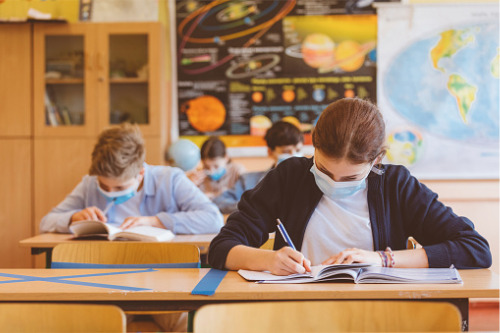

While private schools could issue waivers to students’ parents to allow children to continue attending classes amid the COVID-19 pandemic, legal experts warn that those waivers are not enough to completely absolve schools from liability should students get infected.
In theory, a private school could require a student’s parents to sign a waiver before the student can resume classes. If parents sign the waiver, they take full responsibility for their child’s welfare, and they forfeit their right to hold the school liable in the event their child catches the coronavirus while in class.
But some legal experts think that such documents are not binding enough.
Eric Roher, a lawyer with the firm BLG, told CTV News that he has been asked to provide them to some alternative and independent schools. But even with the waivers, Roher doubts that a parent could be held to a promise that they would not sue the school if their child gets infected.
“And then [the schools are] going to get sued even if they’ve done everything they could possibly do to stop the virus,” Roher said.
Waivers can be difficult to enforce, especially if they are suddenly imposed on parents who have already paid for their children’s tuition and confirmed their enrolment, said John Schuman, a child and family law specialist and senior partner at Devry Smith Frank LLP.
“Parents have to have time to consider them and make sure they understand them, and perhaps consult a lawyer,” explained Schuman.
“Where there’s less of that freedom, or (if) parents aren’t really free to fully understand what’s going on and to walk away if they need to, waivers become less enforceable.”
Schumer suspects that insurance companies have pressured schools into issuing the waivers, threatening to raise their rates unless the schools can issue waivers to lower their chances of facing a lawsuit.
“Generally, private schools operate on fairly thin margins,” Schumer told CTV News, “so all the extra costs of sanitizing is going to stretch their finances a bit and [if they also] have an insurance company who’s going to tell them, ‘We’re going to raise your rates if you don’t take some precautions, you don’t have a waiver,’ [then] they need to have the waiver signed.”
Instead of requiring parents to sign a waiver, Roher believes the better option would be to warn parents of the possible risk their children face while at school.
“What I would prefer, to be honest with you, is that we spell out what the safety and learning protocols will be and have parents confirm that they’ve read and understood them. I think that’s a safer approach.”
